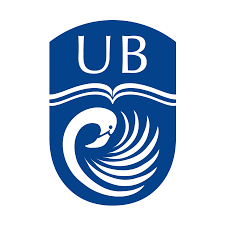Parenting Styles and Student Academic Performance in The Bahamas
DOI:
https://doi.org/10.15362/ijbs.v30i1.563Abstract
International evidence suggests that parenting styles have a significant impact on academic success. However, there is paucity of Caribbean literature on this phenomenon. The current Bahamian study utilises a quantitative method to examine the relationship between parenting styles and students’ academic performance, using Diana Baumrind’s authoritarian, authoritative, and permissive parenting styles model. The sample consists of 582 randomly selected parents and 582 students. The survey instrument comprises a demographic questionnaire and the Parenting Styles and Dimensions Questionnaire (PSDQ) enabling parents to self-report parenting styles on a five-point Likert scale. Grade point averages from school records were used to measure academic performance. Reliability analyses revealed overall good internal consistency (Cronbach’s alpha = .80) for the PSDQ on the Bahamian parent sample. Pearson product-moment correlation analyses indicate no statistically significant relationship between the authoritative, authoritarian and permissive parenting styles and students’ academic performance in The Bahamas. Low to moderate correlations resulted between the authoritative and authoritarian parenting styles, respectively and academic performance. A moderate negative correlation was yielded between the permissive parenting style and academic performance. Results from this study are intended to broaden the literature on parenting styles and the impact thereof on academic performance in The Bahamas and the Caribbean.
References
Alexander, V. & Maeda, Y. (2015). Understanding student achievement in mathematics and science: The case of Trinidad and Tobago. Prospect, 45, 577–591. https://doi.org/ 10.1007/s11125-015-9373-y
Aturupane, H., Glewwe, P., & Wisniewski, S. (2013). The impact of school quality, socioeconomic factors, and child health on students' academic performance: evidence from Sri Lankan primary schools. Education Economics, 21(1), 2–37. https://doi.org/ 10.1080/09645292.2010.511852
Bahamas Education Minister addresses 8th Inter-American Meeting of Ministers of Education in Panama. (2015, February 05). Bahamas Weekly. http://www.thebahamasweekly.com/publish/international/Bahamas_Education_Minster_Addresses_8th_Inter-American_Meeting_of_Ministers_of_Education_in_Panama_printer.shtml.
Bahamas Ministry of Education, Science & Technology. (2019). Annual Report.
Bahamas Ministry of Education, Science & Technology. (2016). Vision 2030: A shared vision for education in The Commonwealth of The Bahamas. https://ufdc.ufl.edu/AA00086436/00001/pdf
Baumrind, D. (1966). Effects of authoritative parental control on child behaviour, Child Development, 37(4), 887–907. https://doi.org/10.2307/1126611
Baumrind, D. (1989). Rearing competent children. In W. Damon (Ed.), Child development today and tomorrow (pp. 349–378). Jossey-Bass.
Bowe, A. G. (2023). Examining student gendered experiences with parent involvement in The Bahamas. International Journal of Bahamian Studies, 29(2), 33–45. https://doi.org/10.15362/ijbs.v29i2.523
Buehler, C., & Gerard, J. (2013). Cumulative family risk predicts increases in adjustment difficulties across early adolescence. Journal of Youth and Adolescence, 42(6), 905–920. https://doi.org/10.1007/s10964-012-9806-3.
Collie-Patterson, J. M. (2008). The national average is a D: Who is to blame? The International Journal of Bahamian Studies, 14, 28–37. https://doi.org/10.15362/ijbs.v14i0.102
Crawford-Brown, C. (1999). The impact of parenting on conduct disorder in Jamaican male adolescents. Adolescence, 34 (134), 417–436. https://search.ebscohost.com/login.aspx?direct=true&db=asn&AN=2244634&site=ehost-live
Davis, D. (2000). Supporting parent, family, and community involvement in your school. Northwest Regional Educational Laboratory. https://citeseerx.ist.psu.edu/document?repid=rep1&type=pdf&doi=e091f202720e77e02b155a9469aff81c8af4de35
DeLisle, J. (2016). The development of theory on gendered patterns of achievement in the Anglophone Caribbean: Insights, contradictions, and silences. Gender and Education, 30(4), 450–466. https://doi.org/10.1080/09540253.2016.1216951
Eirini. F. (2010). Parental interest in children's education, children's self‐esteem and locus of control, and later educational attainment: Twenty‐six-year follow‐up of the 1970 British Birth Cohort. British Journal of Educational Psychology, 76(1), 41–55. https://doi.org/10.1348/000709905X52508
Elham, D., Siti, N. Y., Rumaya, B. J., & Mansor, A. T. (2012). Relationship between parenting style and academic achievement among Iranian adolescents in Sirian. Asian Social Science, 8, 156–160. https://doi.org/10.5539/ass.v8n1p156
Fielding, W. J., & Gibson, J. (2015). Education: Attitudes and achievement of males and females in The Bahamas. Nassau [Unpublished document, College of the Bahamas]. Researchgate. https://doi.org/10.13140/RG.2.1.4490.16 03
Graham, D. H. J. (2007). The role of parental involvement in the education of secondary school children in Barbados: An examination of family and school contexts on classroom motivation [Unpublished doctoral dissertation, Oakland University].
Hartwig, M. K., & Dunlosky, J. (2012). Study strategies of college students: Are self-testing and scheduling related to achievement? Psychonomic Bulletin & Review, 19(1), 126–134. https://doi.org/10.3758/s13423-011-0181-y
Hayek, J., Schneider, F., Lahoud, N., Tueni, M., & de Vries, H. (2022). Authoritative parenting stimulates academic achievement, also partly via self-efficacy and intention towards getting good grades. Plos one, 17(3), e0265595. https://doi.org/10.1371/journal.pone.0265595
Jones, G., Chen, X., Stanton, B., Dinaj-Koci, V., Deveaux, L., Lunn, S., Brathwaite, N., & Gomez, M. P. (2012). Parental monitoring and risky behaviour in Bahamian youth. International Journal of Child, Youth and Family Studies, 4, 376–395. https://doi.org/10.18357/ijcyfs34201211483
Kapur, R. (2018). Factors influencing the students’ academic performance in secondary schools in India. University of Delhi, 575–587. https://www.researchgate.net/profile/Radhika-Kapur-2/publication/324819919_Factors_Influencing_the_Students_Academic_Performance_in_Secondary_Schools_in_India/links/5ae42185458515760abe8912/Factors-Influencing-the-Students-Academic-Performance-in-Secondary-Schools-in-India.pdf
Kline, P. (1999). The handbook of psychological testing (2nd ed.). Routledge.
Kudari, J. M. (2016). Survey on the factors influencing the student’s academic performance. International Journal of Emerging Research in Management and Technology, 5(6), 30–36.
Lipps, G., Lowe, G., Gibson, R., Halliday, S., Morrise, A., Clarke, N., & Wilson, R. (2012). Parenting and depressive symptoms among adolescents in four Caribbean societies. Child and Adolescent Psychiatry and Mental Health 6(2). https://doi.org/10.1186/1753-2000-6-31
Masud, F., Thursamy, R., & Ahmad, M. S. (2015). Parenting styles and academic achievement of young adolescents: A systematic literature review. Quality and Quantity, 49, 2411–2433. https://doi.org/10.1007/s11135-014-0120-x
McNair, R., & Johnson, D. (2009). Perceived school and home characteristics as predictors of school importance and academic performance in a diverse adolescent sample. North American Journal of Psychology, 11(1), 63–84. http://najp.us/
Moradian, J., Alipour, S., & Shehni Yailagh, M. (2021). The causal relationship between parenting styles and academic performance mediated by the role of academic self-efficacy and achievement motivation in the students. Iranian Journal of Family Psychology, 1(1), 63–74. https://www.ijfpjournal.ir/article_245493.html?lang=en
Organisation of Eastern Caribbean States Education Reform Unit. (2000). Teachers’ work and education reform: Research report. https://oecs.int/en/our-work/knowledge/library/teachers-we/download
Reitman, D., Rhode, P. C., Hupp, S. D., & Altobello, C. (2002). Development and validation of the Parental Authority Questionnaire-Revised. Journal of Psychopathology and Behavioral Assessment, 24(2), 119–127. https://doi.org/10.1023/A:1015344909518
Rivers, J., Mullis, A. K., Fortner, L. A., & Mullis, R. L. (2012). Relationships between parenting styles and the academic performance of adolescents. Journal of Family Social Work, 15(3), 202–216. https://doi.org/10.1080/10522158.2012.666644
Robinson, C. C., Mandleco, B., Olsen, S. F., & Hart, C. H. (2001). The Parenting Styles and Dimensions Questionnaire (PSDQ). In B. F. Perlmutter, J. Touliatos, & G. W. Holden (Eds.), Handbook of family measurement techniques: Vol. 3 Instruments & index (pp. 319–321). Sage.
Rodríguez-Rodríguez, D., & Guzmán, R. (2019). Socio-familial risk factors and personal protective variables of academic performance in secondary education students. Psicothema 31(2), 142–148. https://doi.org/10.7334/psicothema2018.213
Roopnarine, J. L., & Brown, J. E. (1997). Caribbean families: Diversity among ethnic groups. Ablex Publishing Corporation.
Roopnarine, J. L., Krishnakumar, A., Metindogan, A., & Evans, M. (2006). Links between parenting styles, parent-child academic interaction, parent-school interaction, and early academic skills and social behaviors in young children of English-speaking Caribbean immigrants. Early Childhood Research Quarterly 21(2), 238–252. https://doi.org/10.1016/j.ecresq.2006.04.007
Simons-Morton, B., & Chen, R. (2009). Peer and parent influences on school engagement among early adolescents. Youth and Society, 41(1), 3–25. https://doi.org/10.1177/0044118X09334861
Smith, D. E., & Moore, T. M. (2013). Parenting style and psychosocial outcomes in a sample of Jamaican adolescents. International Journal of Adolescence and Youth, 18 (3), 176–190. https://doi.org/10.1080/02673843.2012.682593
Stubbs, N. S. (2015). Family functioning and academic self-efficacy among sixth form and community college students in Barbados and St. Lucia. The International Journal of Learning in Higher Education, 22(4), 35–48. https://doi.org/10.18848/2327-7955/CGP/v22i04/58965
Stubbs, N. S., & Maynard, D. M. B. (2017). Academic self-efficacy, school engagement and family functioning, among postsecondary students in the Caribbean. Journal of Child and Family Studies, 26, 792–799. https://doi.org/10.1007/s10826-016-0595-2
Turner, E. A., Chandler, M., & Heffer, R. W. (2009). The influence of parenting styles, achievement motivation, and self-efficacy on academic performance. College Students. Journal of College Student Development 50(3), 337–346. https://doi.org/10.1353/csd.0.0073
Whitesell, N., Mitchell, C., & Spicer, P. (2009). A longitudinal study of self-esteem, cultural identity, and academic success among American Indian adolescents. Cultural Diversity and Ethnic Minority Psychology, 15(1), 38–50. https://doi.org/10.1037/a0013456
Yang J., & Zhao, X. (2020). Parenting styles and children’s academic performance: Evidence from middle schools in China. Children and Youth Services Review, 113. https://doi.org/10.1016/j.childyouth.2020.105017







